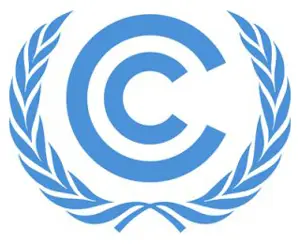This project is generating renewable energy from pig manure in Thailand. By capturing methane and generating electricity from biogas, this project reduces the amount of greenhouse gas emissions produced by pig farming. Furthermore, the new treatment system provides an affordable source of fertilizer while lessening pollution and other negative impacts on the surrounding environment and community.
Where & Why
Agriculture is responsible for just over 14% of Thailand’s greenhouse gas emissions. It is the leading source of methane, accounting for 70% of the country total. When it comes to pig farming, manure management is the primary source of emissions.
In Thailand, the most common way that farmers treat their pig manure is via anaerobic lagoon systems that store the slurry in uncovered ponds. As the manure breaks down, it releases harmful methane emissions into the air which have 21 times the global warming potential of carbon dioxide.
However, emissions aren’t the only harmful side effect of this process. When waste is contained in open ponds it can cause foul odors that bother neighboring residents. There is also a greater risk of overflows during the rainy season which can lead to wastewater pollution.
How & Who
Through this project, one pig farm in Thailand’s Ratchaburi province is employing a different, more sustainable method to treat its pig waste. By replacing their old lagoon system with a closed anaerobic system, SPM Farm is able to capture the methane rich biogas that is produced during treatment. This biogas is then combusted using spark ignition engines to produce electricity that can be used on-site. This new source of power replaces the electricity that currently comes from the grid. Furthermore, any excess electricity produced by the farm will be sent to the national grid. By generating a renewable source of energy and reducing the farm’s reliance on fossil-fuel, this project will avoid over 3,000 metric tons of greenhouse gas emissions each year.
Along with generating electricity, the waste treatment process also produces a fertilizer that can be supplied to local farmers at low cost and is distributed for free to schools where it is used to grow food for students.
Because it is enclosed, the new treatment system also helps to prevent some of the other negative impacts of manure management, including wastewater overflows, groundwater contamination, and unpleasant odors. This project is intended to drive further adoption of waste-to-energy systems by building confidence among Southeast Asian farmers in the efficacy, cost and safety of this newer type of technology.

Environmental Benefits
- Combats climate change by reducing reliance on fossil fuels for energy generation
- Reduces the risk of wastewater pollution

Community Benefits
- Reduces offensive odors
- Reduces risk of groundwater contamination and resulting health problems
- Improves access to low cost fertilizers for food production
Project Type

Energy
Location
Annual CO2 Reduction
3,379 metric tons CO2e
SDGs Supported
Verification Standard
Project Developers
SPM Feedmill Co., Ltd
Project Documents
Offset Your Travel Footprint
Calculate and offset the carbon footprint of your flight in seconds via our online carbon calculator! Already know your carbon footprint? Click the option to “offset now.”








